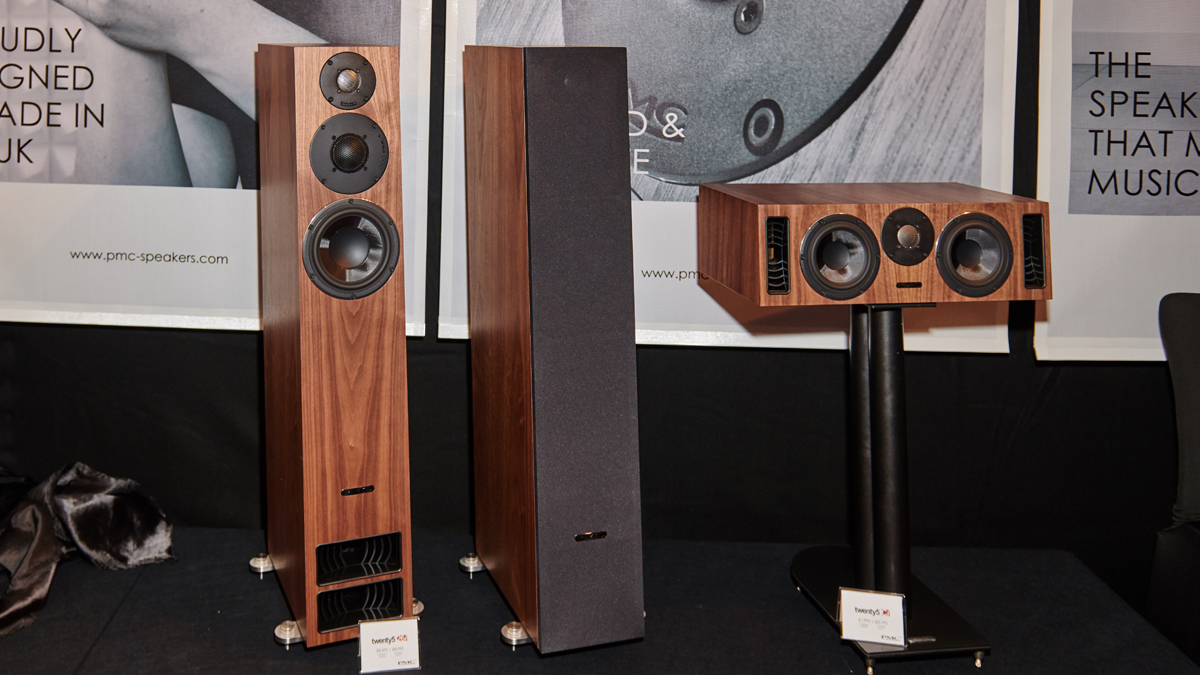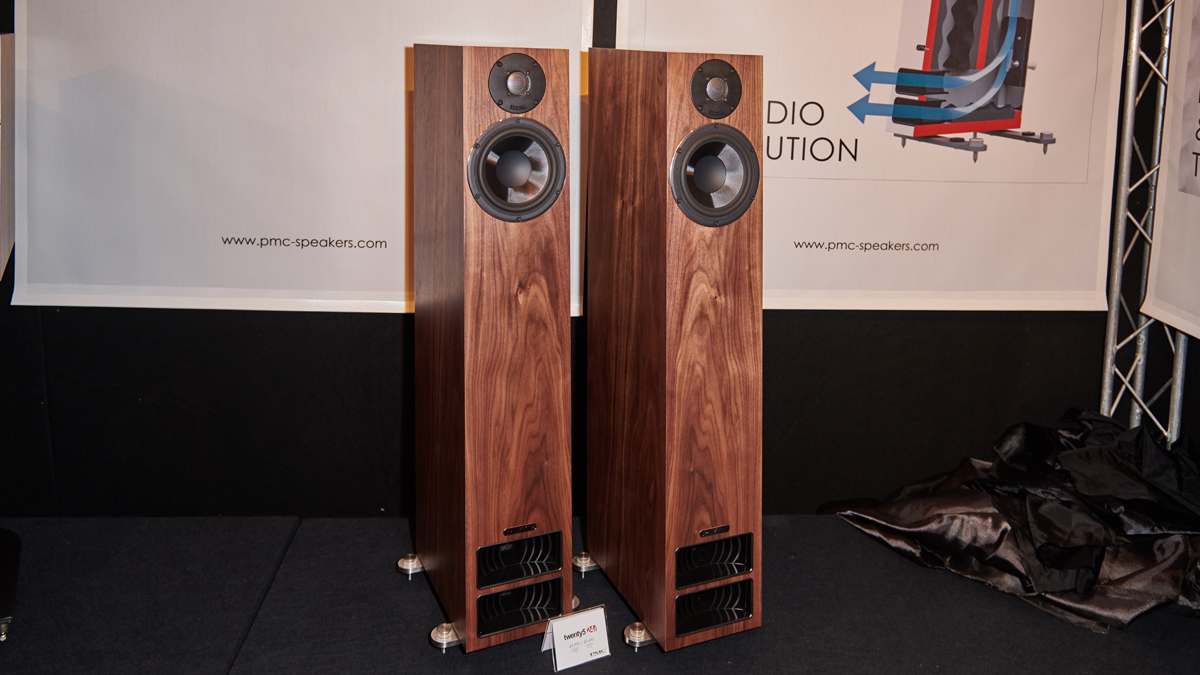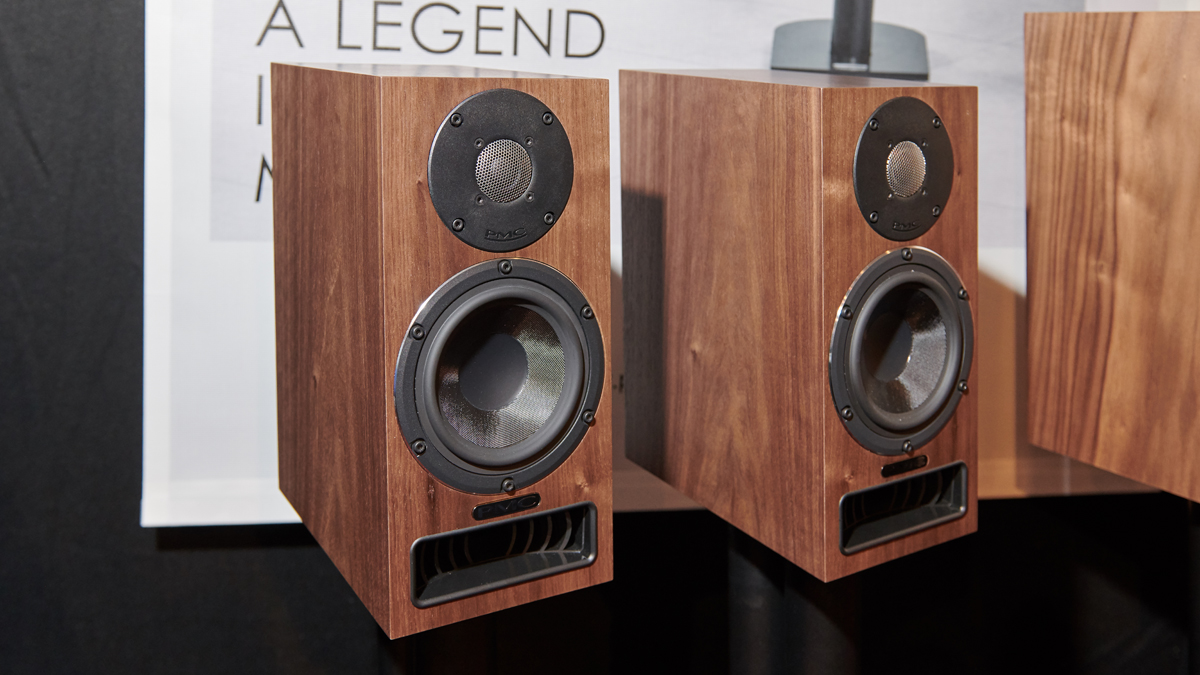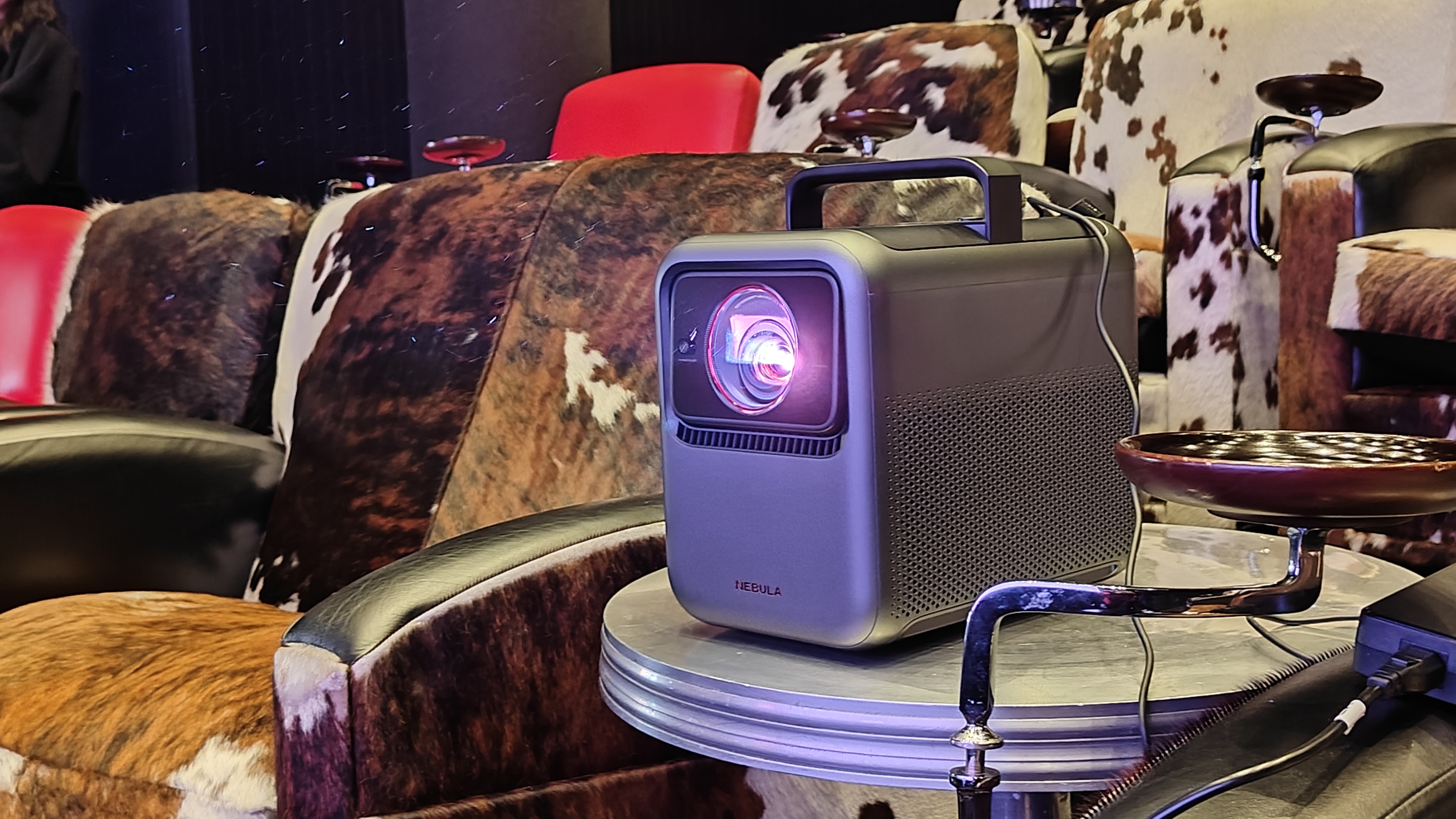
PMC has launched an improved speaker family based on its award-winning Twenty5 series range at the Bristol Hi-Fi Show.
The six-strong PMC Twenty5i series — the 'i' is for 'improved' — features two sets of two-way standmount speakers and two two-way floorstanders alongside the three-way Twenty5.26i floorstanders and the Twenty5Ci centre channel too.
The core changes from the 2016 Twenty5 series are a new tweeter, a re-engineered crossover, different finishes and a brushed rather than polished back panel. The aim for PMC was to create a more open and expressive sound.

To achieve that, the redesigned high-frequency drive unit is one that’s derived from PMC’s premium Fact speaker range. It’s a 19mm soft dome tweeter with a 34mm outer surround to keep a wide dispersion while also working down to lower frequencies.
The military-grade, fibre-glass board-mounted crossovers have been entirely revamped. The crossover point has been lowered from 1.8kHz down to 1.7kHz in the two-way models, with a mind to making the response across the drive units even more joined up. It also gives space for the low frequency units to focus more on their core responsibilities.
The two floorstanding models have also had improvements to their plinths. Whereas before they plinths were fixed firm to the cabinets, the attachments are now shock absorbing for better vibration management. PMC says it makes for vast improvements in the control of unwanted resonance. There are no changes to the cabinet sizes or materials themselves.

The PMC Twenty5.21i standmount speakers (£1,995) differ from the Twenty5.22is (£2,995) by a 130mm bass driver compared to a 165mm unit, along with a slightly larger box. It’s the same difference between the PMC Twenty5.23i (£3,495) and PMC Twenty5.24i floorstanders (£4,995).
Get the What Hi-Fi? Newsletter
The latest hi-fi, home cinema and tech news, reviews, buying advice and deals, direct to your inbox.
The three-way Twenty5.26i speakers are £8,495 and the centre channel comes in at £1,995.
The range hits UK shelves in March 2020 and is available in a choice of Oak, Walnut and Silk White finishes. A high polish Diamond Black will cost a few hundred more per pair.
Dan is a staff writer at What Hi-Fi? and his job is with product reviews as well as news, feature and advice articles too. He works across both the hi-fi and AV parts of the site and magazine and has a particular interest in home cinema. Dan joined What Hi-Fi? in 2019 and has worked in tech journalism for over a decade, writing for Tech Digest, Pocket-lint, MSN Tech and Wareable as well as freelancing for T3, Metro and the Independent. Dan has a keen interest in playing and watching football. He has also written about it for the Observer and FourFourTwo and ghost authored John Toshack's autobiography, Toshack's Way.
-
Gray As an original twenty21 owner, I wondered how much better the 25 version might be.Reply
Now I'm wondering how the 25i version improves on that :rolleyes:
If it really is 'more open and expressive' than what was already supposedly better than mine......then it really will be good.
(At 2 grand a pair, probably best I don't find out how much better). -
Gray Reply
You're right, it's all about being content.DougK said:Be happy with what you have, they sound great to me :)
So you might need to get those PMC actives off your radar :LOL:
(These are getting stupidly near those in price though). -
Reply
PMC's are becoming too expensive for my pocket, fortunately we both got in before the price rises. I'm more than happy with the performance of mine.Gray said:You're right, it's all about being content.
So you might need to get those PMC actives off your radar :LOL:
(These are getting stupidly near those in price though).
I've almost pulled the trigger on the twotwo5's so many times over the last few years, but there's only pro reviews on the net for studio use and they generally say the presentation is much brighter than the DB1's so I'm still on the fence.
Maybe some sealed box baby Harbeth's might be the way to go some time in the future?

